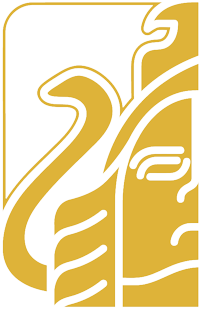
Argentina: Opportunities and Risks for Investors
One year into President Javier Milei's administration, Argentina finds itself at the center of a complex process of economic reforms. The nation is grappling with the challenges inherited from years of ineffective economic policies and chronic inflation. While some signs of economic recovery are evident, the investment ecosystem remains uncertain. This analysis explores Argentina's current financial situation, investment opportunities, and the characteristics of its economic fabric.
Macroeconomic Overview
- Inflation and Monetary Stability
While monthly inflation dropped to 2.7% in October 2024, annual inflation is 193%, one of the highest rates globally. The reduction in monetary expansion and the austerity policies introduced by Milei have helped curb rising prices, but the risk of instability remains high. - Gross Domestic Product (GDP)
In the third quarter of 2024, GDP grew by 3.9% compared to the previous quarter, marking the end of a recession. However, the annual contraction of 2.1% reflects the impact of fiscal and monetary reforms on an already fragile economy. - Poverty and Inequality
Poverty rose to 52.9% during the first six months of Milei's term before declining to 38.9% in the third quarter. This reduction suggests a possible recovery, though austerity policies continue to impact the most vulnerable populations heavily.
Economic Fabric
Argentina's economy is complex and diversified, characterized by strategic sectors and structural weaknesses:
- Strategic Sectors
- Agribusiness: Argentina is one of the world's leading exporters of soybeans, corn, and beef. This sector is a vital source of foreign currency and a cornerstone of the national economy.
- Energy: The Vaca Muerta formation, one of the largest shale gas reserves in the world, offers enormous opportunities for energy investors.
- Technology: The digital technology sector has grown significantly recently, with innovative startups attracting international investment.
- Systemic Weaknesses
- Dependency on Imports: Argentina heavily imports capital goods, making its trade balance vulnerable.
- Bureaucracy and Corruption: The complexity of the regulatory system and widespread corruption represent significant obstacles for foreign investors.
Economic Reforms and Investment Opportunities
The Milei administration has implemented a series of structural reforms to attract investments and stimulate economic growth:
- Digital Dollar: The government is exploring the introduction of a digital currency pegged to the dollar to stabilize the economy further.
- Reduction of Public Spending: Cuts to subsidies and public spending have improved the fiscal balance and triggered social protests.
- Special Economic Zones: Tax incentives are being developed to attract foreign direct investments in the manufacturing and energy sectors.
These policies make Argentina an appealing opportunity for high-risk-tolerant investors, particularly in agriculture, energy, and technology sectors.
Economic Fabric and the Role of Lithium
Argentina boasts extraordinary natural resources and strategic industrial sectors, with lithium standing out prominently. Holding 21% of the world's lithium reserves, the country is a key global player alongside Chile and Bolivia.
The Lithium Industry
- Production and Reserves: Major lithium reserves are located in the "Lithium Triangle" (Salta, Jujuy, and Catamarca), where lithium salts are extracted from brines. Key players include giants like Albemarle and Lithium Argentina.
- Global Demand: Lithium demand is expected to triple by 2030, driven by the growth of electric vehicles (EVs) and energy storage solutions. By 2030, 70% of lithium demand will be tied to EVs, highlighting the sector's growth potential.
- Prices and Opportunities: Despite lithium prices hitting multi-year lows in 2024, a recovery is anticipated by 2025, with average prices expected to stabilize around $20,000 per ton.
Argentina's Competitive Advantages
- Low Production Costs: Brine-based operations have lower costs than hard rock mining.
- Strategic Investments: The government aims to incentivize projects that add value to the production chain, such as refining lithium for high-quality batteries.
Sector Challenges
- Regulations and Political Stability: Political and fiscal instability risks foreign investors.
- Environmental Impact: Lithium extraction requires significant amounts of water, a scarce resource in production regions, leading to environmental and social challenges.
Argentina - Focus on Venture Capital
Argentina, known for its vibrant culture and rich history, is also emerging as a key player in the global venture capital landscape. With a growing startup ecosystem and increasing investor interest, Argentina's venture capital market is experiencing significant development.
Drivers of Venture Capital Growth
- Rapid Growth: Entrepreneurs increasingly seek venture capital to scale their businesses rapidly.
- Access to Expertise and Networks: Venture capital provides funding and offers entrepreneurs strategic expertise and networks to navigate the challenges of early-stage business development.
Key Market Trends
- Focus on Technology Startups: Argentina's tech sector is rapidly expanding, particularly in e-commerce, fintech, and software development. These sectors attract investors due to their high growth potential and scalability.
- Participation of International Investors: Economic reforms and a more favorable business environment have attracted foreign capital, further fueling the growth of Argentina's venture capital market.
Unique Local Factors
- Entrepreneurial Culture: Argentina has a long history of innovation and entrepreneurship, with numerous successful startups and established tech companies. This culture fosters a supportive ecosystem for startups and venture capital investments.
- Talent Availability: The country is known for its highly skilled workforce, particularly in technology and engineering, which attracts local and international investors.
Macroeconomic Influences
- Economic Stability: Recent progress in stabilizing the economy and reducing inflation has boosted investor confidence, making Argentina an attractive destination for venture capital.
- Supportive Government Policies: Tax incentives and startup funding programs have created a favorable environment for venture capital investments.
Future Outlook
Argentina's venture capital market is poised for further growth, supported by both internal and external factors:
- Promising Sectors: Technology, fintech, and agritech continue to attract significant investor interest.
- International Integration: Increased participation of international investors will strengthen the ecosystem and foster resource and expertise sharing.
- Startup Development: With the market projected to reach $698.40 million by 2024, venture capital will play a critical role in the development of Argentine startups (Source: Statista).
Is Investing in Argentina Worthwhile?
Investing in Argentina can be rewarding but requires careful risk assessment:
- Advantages
- High-Potential Sectors: Agriculture, energy, and technology offer significant growth opportunities.
- Asset Prices: The peso's devaluation has made Argentine assets more affordable for foreign investors.
- Risks
- Economic Instability: High inflation and public debt pose significant risks.
- Political Risk: Milei's reforms are controversial and could be reversed by future administrations.
Future Prospects
Argentina must focus on economic stability, regulatory transparency, and infrastructure development to attract sustainable investments. The country has the potential to become a regional hub in strategic sectors, but the success of its policies will depend on balancing reforms with social consensus.

 News
News